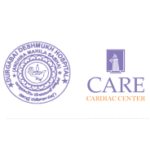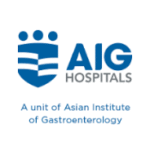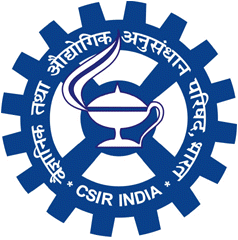Treatments Focus
Cancer Risk Assessment for Stomach/ Colon Cancer

Cancer is the uncontrolled growth of abnormal cells in the body. These cells begin to accumulate to form tumours. Tumours could be benign or cancerous. When these abnormal cells grow in stomach or colon region, it is called stomach/ colon cancer. There are some screening procedures for colon cancer and other cancer risk assessment tools that could help with cancer prediction.
Stomach cancer and Colon cancer
Stomach cancer is also known as gastric cancer. Stomach cancer and colon cancer are different cancers. Their symptoms, outlooks and treatments also vary.
According to a new study, the same type of bacteria that causes stomach cancer may also increase the risk of colon cancer. This is particularly true in certain populations, such as African Americans.
There are several types of stomach and colon cancers – of them, adenocarcinoma the common one to occur. Adenocarcinoma accounts for 90-95% of stomach cancers in people. In colon cancer diagnoses, it is found that adenocarcinoma starts in the mucus-secreting glands. Gastric (stomach) cancer occurs in the cells that line the stomach.
Risk Factors
The cause of both stomach and colon cancers are unknown. However, both cancers share familiarity in their symptoms.
Stomach Cancer Risk Factors
- Gastroesophageal reflex disease (GERD)
- Obesity
- Diet with high salt intake
- Unbalanced diet with less or no fruits & vegetables
- Family history of stomach cancer
- Long-term stomach inflammation (gastritis)
- Smoking
- Alcohol usage
- Stomach polyps
Colon Cancer Risk Factors
- Obesity
- Older age (majorly among people who are above 50)
- A personal history or family history or colorectal cancer
- Polyps
- Low-fiber diet
- Physical inactivity
- Diabetes
- Smoking
- Alcohol consumption
- Radiation therapy for cancer
- Sometimes ethnicity (African-American race)
Common genes responsible for stomach and colon cancer
Some of the gene alterations found to be involved in stomach cancer are:
- Most commonly associated with Hereditary Diffuse Gastric Cancer (HDGC) is called CDH1
- Other genes: CTNNA1
Some of the gene alterations responsible for colon cancer are:
- MSH2 and MSH6 both on chromosome 2
- MLH1 on chromosome 3
Assessment of Stomach and Colon Cancer Risk
Individuals with any of the risk factors mentioned above should consider the cancer assessment. Both the cancers have three assessment tests in common, these include:
- Detailed family history analysis
- Genetic tests for any gene alterations
- Personal history
There is no standard or routine screening test for stomach cancer. However, upper endoscopy (also called esophagogastroduodenoscopy or EGD) is the test most often done if your healthcare provider thinks you might have stomach cancer.
The screening tests that can be performed to assess the colorectal cancer risk include:
- Stool Tests
- Flexible Sigmoidoscopy (Individuals with cancer risk should get tested – every 5 or 10 years)
- Colonoscopy (Test Frequency: every 10 years)
- CT Colonography (Virtual Colonoscopy) (Test Frequency: every 5 years)
Dizziness or lightheadedness, or unsteadiness
Nausea
Vomiting
Headache
FAQ's :
References:
- What Is Stomach Cancer? Cancer. https://www.cancer.org/cancer/stomach-cancer/about/what-is-stomach-cancer.html Accessed on May 30, 2022
- Colorectal cancer: Types. Stanford Health. https://stanfordhealthcare.org/medical-conditions/cancer/colorectal-cancer/types.html Accessed on May 30, 2022
- Stomach Cancer. Rare Diseases. https://rarediseases.org/rare-diseases/stomach-cancer/ Accessed on May 30, 2022
- Colon cancer. Mayo Clinic. https://www.mayoclinic.org/diseases-conditions/colon-cancer/symptoms-causes/syc-20353669 Accessed on May 30, 2022
- Stomach cancer. Mayo Clinic. https://www.mayoclinic.org/diseases-conditions/stomach-cancer/symptoms-causes/syc-20352438 Accessed on May 30, 2022
- The Colorectal cancer risk assessment tool. National Cancer Institute. https://ccrisktool.cancer.gov/ Accessed on May 30, 2022
- Colorectal Cancer Screening Tests. Centers for Disease Control and Prevention. https://www.cdc.gov/cancer/colorectal/basic_info/screening/tests.htm Accessed on May 30, 2022
Related Articles
Book an Appointment to understand how GenepoweRx can help you in treating
Cancer Risk Assessment for Stomach/ Colon Cancer
Meet The Doctors
Dr Kalyan Uppaluri
Dr Hima Challa
Your genetics … Your Test ... Your Health Success
It’s always the word of mouth that’s the best advice. Here are some of our…


Our Partners






Professional Partnerships
Government Association

